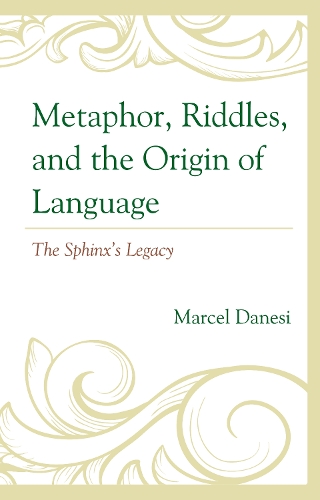
Metaphor, Riddles, and the Origin of Language: The Sphinxs Legacy
(Hardback)
Publishing Details
Metaphor, Riddles, and the Origin of Language: The Sphinxs Legacy
By (Author) Marcel Danesi
Bloomsbury Publishing PLC
Lexington Books/Fortress Academic
12th October 2022
United States
Classifications
Professional and Scholarly
Non Fiction
Jokes and riddles
Literary theory
Creative writing and creative writing guides
401
Physical Properties
Hardback
158
Width 158mm, Height 236mm, Spine 19mm
408g
Description
Scientific evidence for the origin of speech is abundant, but evidence for the origin of language as separate from speech as a naming system remains speculative. What evidence can be utilized that will furnish relevant insights on the origin or language This book attempts to provide an answer by suggesting that the first riddles of humanity, along with the first myths, reveal that language may have emerged as a mode of reflection via metaphora mode that involves blending speech forms together to produce complex, abstract cognition.
Reviews
Marcel Danesi is a master of weaving different disciplinary threads, from linguistics to history and psychology. His book, that creatively links metaphors, riddles, and the origin and development of language, is a clear expression of this talent.
-- Yair Neuman, Ben Gurion University of the NegevThis is an extremely thoughtful and provocative book which attempts a very different answer to the question of the origins of language. Language is a system that allows us to think and reflect on the world as well as a system designed for cooperative social action. It is this cooperative social action as the basis for coordinated hunting, and ultimately social learning, that is customarily highlighted in evolutionary accounts. Danesi turns things on their head, recognizing the importance of metaphor in human cognition and then focusing on riddles, like the Riddle of the Sphinx, perhaps one of the earliest riddles, as a form of social action and as a mechanism for highlighting and cementing the role of metaphor in thinking and consciousness. This is a highly original book, scholarly, thoughtful and at times brillianthighly readable and provocative (in the best possible way) throughout.
-- Geoffrey Beattie, Edge Hill UniversityAuthor Bio
Marcel Danesi is professor emeritus of linguistic anthropology at the University of Toronto.
